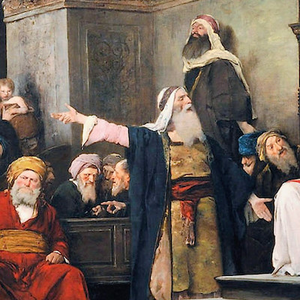
Nietzsche’s Pilate | Mark Bauerlein
Nietzsche’s Pilate | Mark Bauerlein
Mentions
See All
Jason Scott Montoya @JasonSMontoya
·
Dec 13, 2023
- Post
“The mob wanted blood, though, and the “soldiers, too, had to have their bit of sport,” Shaw grumbles. Pilate, a spineless chief, gratified them.
…
It’s a reflective move, a step away from circumstances. Is Jesus guilty or innocent? That’s not important (“One Jew more or less—what does it matter?”). Do the Jewish leaders have a valid claim? Who cares?
…
He does so to discredit the truth that enables Jesus’s worshippers to “hear” him. “What is truth?” isn’t a question; it’s a dismissal. He doesn’t expect an answer; he wants to impart his disdain. To cast the dispute before him as a matter of “the truth” deserves nothing but “noble scorn.”
…
Pilate’s irony dissolves the historic reality before him into a show. While everyone else in the drama is committed to the outcome, Pilate stands apart, a disinterested observer, an anti-dogmatist wary of truth-seekers and religious types.”
Jason Scott Montoya @JasonSMontoya
·
Dec 13, 2023
- Post
“Jesus doesn’t respond to Pilate’s question because the question has no answer, at least not a discursive one. Sophisticates such as Pilate can laugh or shrug away any reply. There is no end to their irony. It can be halted only by forces deeper than words: devotion, conviction, sacrifice.”
Jason Scott Montoya @JasonSMontoya
·
Dec 13, 2023
- Curated in 6. Pilate: What Is Truth?